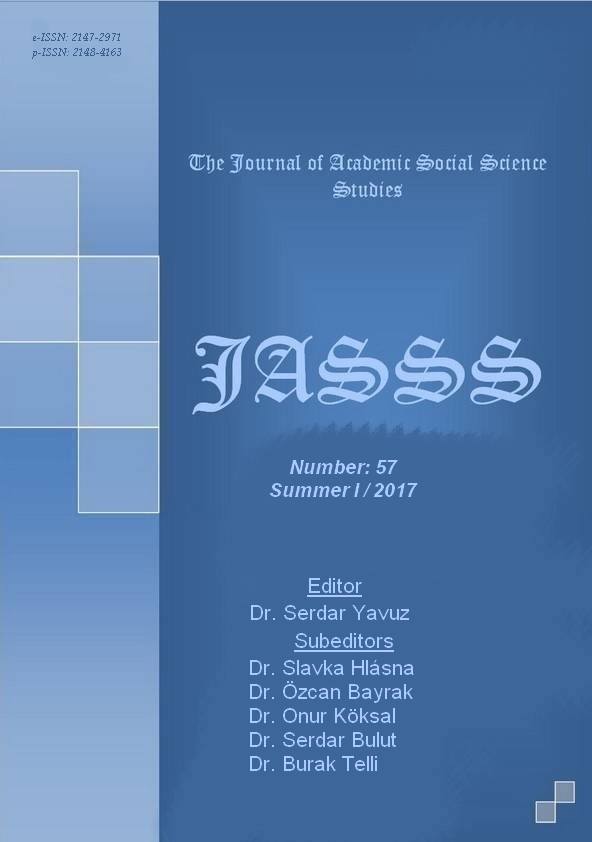Author :
Abstract
Sosyal açıdan bakıldığında ‘öteki’ ifadesinin daha çok emperyalist ülkeler tarafından kullanıldığı beklentisi vardır. Söz konusu ülkeler kendilerini ‘merkezde’ ve dışarıda kalan ülkeleri de ‘öteki’ olarak nitelendirirler. ‘Öteki’ kavramının, sömürgeci ülkelerin ırk merkezci yaklaşımlarından doğduğu açıktır ve bu kavram sömürge sonrası edebiyatta ‘merkeze’ yanıt niteliği teşkil eden en önemli temalardan biri haline gelir. Daniel Defoe’nun kahramanı Crusoe İngiliz sömürgesini temsil eder ve dünyanın el değmemiş yerlerini Krallığın bir paçası haline getirmeyi amaç edinir. Crusoe’nun kölesi Cuma ise, medenileşmemiş yaşamı bahane edilerek, sorgusuz itaatin sembolü, sömürgeleştirilmiş halkı temsil eder. Öte yandan, J. M. Coetzee’nin Foe (1987) adlı eserinde, madalyonun öteki yüzünü tartışmaya açılır ve Crusoe ve kölesi Cuma’nın anlatılmamış öykülerinin karanlık sayfalarında saklı, metinler arası ipuçları araştırılır. Bu eserde, sömürge sonrası dönemde, Cuma’nın sessizliğinde saklı yeni öykülerle karşılaşırız. Foe’nun olay örgüsünde dikkat çekici olan Crusoe’nun ‘öteki,’ konumunda olması ve Cuma’nın öyküsünün eserin temel tartışmasını teşkil etmesidir. Bu makalede, Robinson Crusoe (2000) ve Foe (1987) adlı eserlerin olay örgüleri karşılaştırılacak, karanlık yönler dikkate alınarak, varsayılan öyküler farklı perspektiflerden tartışılıp irdelenecektir.
Keywords
Abstract
Socially the term ‘the other’ is mostly supposed to be used by the imperialist countries. They are at ‘the centre’ and the countries out of this centre are regarded as ‘the other’. It is clear that the concept of ‘the other’ has been derived from the ethnocentric approach of the colonization, and it has been the central topic of post-colonial literature to reflect back to ‘the centre’. Defoe’s Crusoe, representing British Imperialism, has a dream of making the unknown settlements of the world a part of his kingdom. As for his slave Friday; he represents colonized people, the symbol of unquestioning obedience, whose uncivilized life is used as an excuse. However, J. M. Coetzee’s Foe (1987) discusses the other side of the medal, and tries to uncover the untold story of Crusoe and his slave Friday. Here, we come across with a post-colonial story of Friday, hidden under his muteness, where Crusoe becomes ‘the other’ and Friday’s story the central point. In this article it is aimed to compare the stories in Robinson Crusoe (2000) and Foe (1987), and considering the dark sides of both plots, the implied stories will be discussed from different perspectives.





